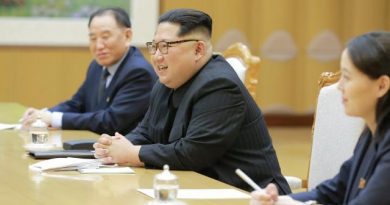Electoral Council Suspends Recall Referendum in Venezuela
By Anthony Tokarz
Staff Writer
Venezuela’s electoral council halted plans for a recall referendum against President Nicolas Maduro, citing fraud in the activists’ methods of securing signatures for the requisite petition. These opposition activists had expected to have gathered all the necessary signatures by the end of October, according to the BBC.
The opposition coalition, Democratic Unity Roundtable (MUD), condemned the decision and called on supporters to retaliate by launching a 12-hour shutdown of businesses and accompanying strikes. These retaliatory actions, however, have seen limited turnout following the government’s threats to shut down and nationalize all businesses that closed in protest, . In a nation racked by food shortages so severe that people have no recourse but to purchase grain from price-gouging black market dealers, the government’s threats have dissuaded many potential protesters, compounded by the presence of roving government scouts.
The electoral council’s rejection of a recall referendum follows months of escalating tensions, resulting from continual delays of state elections and a concerted effort to undermine the powers of the Venezuelan National Assembly, which the ecent demonstrations have often turned violent as protesters participated in vandalism and the occasional throwing of a Molotov cocktail, which prompted government forces to respond with tear gas and rubber bullets.
Caracas-based sociologist Daniel Fermín, argues that people want a nation-wide plebiscite ending seventeen years of socialist rule. A popular activist, Fermín commentates on the evolving crisis through a variety of platforms, from local publications to Twitter. About Wednesday’s strike, Fermín wrote on Twitter: “There’s nothing more ridiculous and useless than pretending to create traffic artificially to deny reality. They’re only deceiving themselves.”
Meanwhile, Democratic Unity Roundtable has begun advocating for an impeachment trial against Maduro. During a rowdy session of the National Assemblscribed by Reuters– during which 100 pro-Maduro Socialists stormed in to chant anti-opposition slogans and wag picket signs — opposition lawmakers introduced a motion to impeach Maduro, though an impeachment mechanism does not yet exist. Instead, opposition members can only hope to force the recall referendum through and oust the leader through democratic means.
To initiate such a referendum, however, the opposition would have to collect signatures from 4 million voters — 20 percent of the electorate of each state for a total of at least 1 percent of the national electorate. Should the petition fail in at least one of Venezuela’s 24 states, the entire process is invalidated. So far, the states of Aragua, Bolivar, Carabobo, and Monagas annulled the petitions in light of these fraud allegations. Telesur reports that the MUD presented 11,000 signatures belonging to the deceased, 3,000 to minors, 1,000 to prisoners, among other irregularities. The state of Carabobo has opened investigations into eight officials and banned them from leaving Venezuela.
The Maduro regime has shown itself capable of slowing down or resetting the democratic process. According to the BBC , opposition members are warning the government of “pushing toward a very dangerous scenario” that will only renew protests, especially as the food shortage escalates and the dropping price of oil erodes the government’s revenue and capacity to respond.
Yet the government has a clear incentive to continue its obstructionist policies, as pointed out by The Guardian; If the referendum occurs before January 10, 2017, it would trigger a presidential election, in which 88 percent of voters would most likely turn against Maduro.



